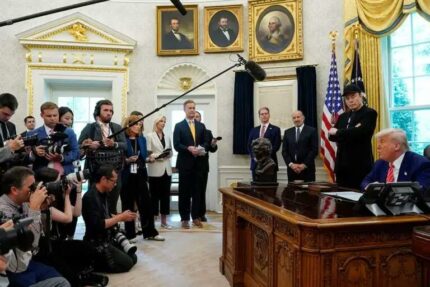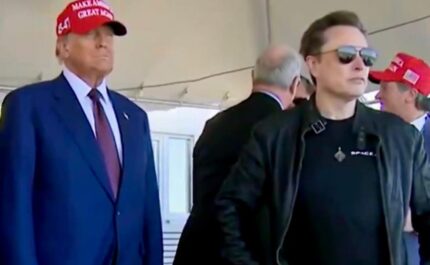The alliance between President Donald Trump and billionaire entrepreneur Elon Musk has seen a dramatic evolution — from mutual disdain to full-throated collaboration, and now, a spectacular rupture. Musk, who once questioned Trump’s character, ultimately emerged as one of the president’s most influential allies before turning against him once more, citing concerns over spending and governance. Their relationship, marked by oscillations of power, praise, and public feuding, now appears to be on the brink of collapse.
An Unlikely Start: Elon Musk’s Early Opposition to Trump
In the early days of Trump’s political ascendancy, Elon Musk was no admirer. During the 2016 campaign, Musk publicly stated that Trump was “not the right guy,” criticizing his character and calling his candidacy a low point in American democratic history. At the time, Musk voiced support for Hillary Clinton, whose climate policies aligned more closely with his own.
Despite those reservations, Elon Musk’s outlook began to shift once Trump assumed office. The Tesla and SpaceX CEO accepted roles on several White House advisory boards, including the president’s manufacturing council — a surprising step for someone who had previously warned against Trump’s leadership style.
From Exit to Engagement: Climate Fallout and Continued Ties
Elon Musk’s early collaboration with the Trump administration was short-lived. He resigned from his advisory roles in 2017 after President Trump announced the U.S. would withdraw from the Paris Climate Accord, calling the move “not good for America or the world.” Still, the split did not sever all ties.
SpaceX remained deeply entangled with federal contracts under Trump’s administration. In a show of public admiration, Trump praised Musk in 2020 during a SpaceX launch, hailing him as a “great brain” and “fantastic” entrepreneur. Their mutual respect began to grow — laying the foundation for deeper political and personal alignment.
A Cautious Alliance Turns to Endorsement
By 2022, Elon Musk’s political tone had noticeably shifted. Disenchanted with the Democratic Party, which he accused of promoting “division & hate,” Musk began supporting Republican candidates. However, he maintained some distance from Trump personally, briefly backing Florida Governor Ron DeSantis during the Republican primaries in 2023.
That changed dramatically following the attempted assassination of President Trump in July 2024. Musk quickly and publicly endorsed Trump’s candidacy, lauding his resilience and committing over $270 million to support his re-election and conservative causes. His endorsement was seen as pivotal, propelling Trump to a decisive electoral victory.
Power and Influence: Elon Musk’s Rise in the Trump Administration

After Trump’s re-election, Musk was appointed to lead the newly created Department of Government Efficiency (DOGE), tasked with slashing federal bureaucracy. In less than six months, Musk became a fixture in Cabinet meetings, regularly traveling on Air Force One and publicly proclaiming his admiration for the president.
Together, Elon Musk and Trump championed aggressive downsizing of federal agencies. DOGE policies led to significant layoffs and agency restructuring. Trump enthusiastically defended Musk, even purchasing a Tesla as a public gesture of support and featuring Musk’s son in Oval Office press events — an unusual level of intimacy for a government official.
Tensions Emerge: Policy Clashes and Political Divergence
Despite their apparent harmony, cracks began to form. Elon Musk openly disagreed with key elements of Trump’s second-term legislative agenda — particularly a sweeping spending bill designed to extend tax cuts and overhaul Medicaid. Musk criticized its scale and cost, saying it conflicted with his efficiency mandate.
A notable spat with White House trade adviser Peter Navarro further exposed internal tensions. After Navarro accused Tesla of relying on cheap foreign parts, Musk fired back with a personal insult, highlighting growing friction within the administration. Trump’s team remained publicly neutral, brushing it off with a “boys will be boys” statement.
A Dramatic Break: Elon Musk’s Exit and Renewed Criticism
Elon Musk resigned from the administration on May 30, 2025, having reached the maximum allowed service period under existing rules. In the days leading up to his departure, he ramped up criticism of the administration’s legislative direction, lamenting what he called the “bloated ambitions” of the new spending bill.
While Elon Musk insisted his resignation was procedural, insiders suggest his exit was hastened by policy disagreements and waning enthusiasm for Trump’s post-election strategy. In a revealing interview, Musk said he was “disappointed” by the president’s budget priorities, reigniting speculation that the once-powerful alliance had devolved into disillusionment.
Future Uncertain: What’s Next for Trump and Musk
With the partnership in tatters, the future of the Trump-Musk relationship remains uncertain. Though Musk still holds considerable sway among conservative voters and tech investors, his break with the administration leaves a power vacuum within DOGE and casts doubt on whether his influence can endure outside formal government channels.
For President Trump, the departure of one of his most high-profile allies poses both symbolic and practical challenges. Whether the two will reconcile, as they have in the past, or continue on divergent paths may shape not only the dynamics within the administration — but the future of American tech-policy relations as well.














